The publishing landscape is ever changing, and it can be daunting for entrepreneurs and business owners who don’t know how to navigate that world.
My guest on today’s show, Suzanne Doyle-Ingram has been guiding coaches, consultants, and entrepreneurs to write client-attracting books for over ten years now, and she has a real passion for what she does. With Prominence Publishing, she’s helped over a thousand people go from “I have no idea where to start” all the way to finally holding their book in their hands. There’s a lot of self-sabotage—the voice of impostor syndrome telling you—you can’t write a book!
In today’s episode, we talk about how Suzanne’s hands-on approach enables her clients to get through the roadblocks and push through to completion. We discuss the nuances that differentiate self-publishing from traditional publishing in terms of timeline and control of your own material. She emphasizes the importance of creating a funnel to market your book effectively, and the role of supporting materials such as worksheets, workbooks, courses, podcasts, or events connected to the book. It’s so enlightening and Suzanne has a wealth of experience to share.
So now, without further ado, on with the show!
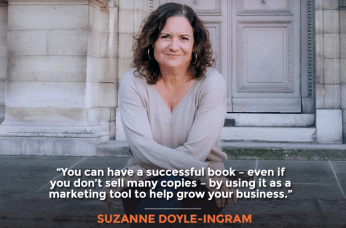
In This Episode
- [02:17] What are the differences between a self-published book, an anthology book, and a book with a traditional publisher? What are their pros and cons?
- [09:58] How did Suzanne sell 100,000 copies of her book? Why is it that she doesn’t recommend publicists?
- [16:33] Suzanne emphasizes the two main focuses of Prominence Publishing.
- [17:29] What do you need to consider when hiring someone for your book marketing?
- [24:30] What are the benefits of having more control over your landing page?
- [27:35] Suzanne talks about the courses she offers and how it generates revenue for her business.
- [35:50] Tips on how to get great testimonial relationships from your clients.
- [44:38] How to use your book as a marketing tool for your business?
- [50:28] Suzanne’s advice and programs for those who want to get their names out there.
Suzanne, it’s so great to have you on the show.
Thank you so much. I’m so happy to be here.
It’s great to have you here. We met in 2017 at a mastermind event by Doug Allen, and I don’t think we kept in touch after that.
I know. It’s funny, but I feel like you’re an old friend. It was such an intense mastermind experience. It’s really, really great to see you again.

It’s great to see you, too. Now, if you could differentiate for our listeners a self-published book, a book that is an anthology to which they contribute a chapter, and a book that they get a traditional publisher for, what’s the best model? What are the pros and cons of each of these different options?
They’re quite different. Let’s start with the difference between self-publishing and traditional publishing. If you could imagine a horizontal line, self-publishing is at one hand, and traditional is at the other. The difference with self-publishing is it can be much faster, you will own all the rights to your book, and you will get all of the royalties from the sales of your book.
With traditional publishing on the other end of the line, it takes a lot longer. You usually have to have a very big following to get published traditionally, like more than a million followers.
Sometimes I have people that say, “I have tons and tons of followers. I have 2000 people that follow me on LinkedIn.” I was like, “oh, sweetie, that’s not tons and tons of followers in this big old world of ours.”
With traditional publishing, you don’t have a lot of control. You don’t get very much money every time a book sells. So those are the two differences.
I always like to tell people that self-publishing has come a long way. It used to be a dirty word, and it used to be literally like you’d go to the coffee shop and then staple a bunch of papers together that used to look absolutely terrible.
You can make a self-published book look very professional.
But you can make a self-published book look very, very professional. That’s what we’ve been doing for a long time. We publish a book for people. We professionally edit, cover, and do interior formatting, but we do it all in their name and let them keep the rights and royalties, so it’s a win-win.
You also asked about the anthology books. One of my biggest pet peeves in this industry is when one person puts together an anthology book but only puts their name on Amazon. That bugs me because if someone has contributed a chapter to a book, they deserve to have the same recognition as the lead or the person who put it all together.
We always make sure. We have a good relationship with Amazon nowadays because we’ve been doing this for 12 years. We always put all of the authors’ names on Amazon because they have their own Amazon Author page, and there are other ways they can use it as a marketing tool.
You mentioned when you have a self-published book, you get the rights to your book. When dealing with a traditional publisher, you sign those rights away to them. So they own the intellectual property of the book that you’re writing. What are the benefits of having these rights? Is it worth the missed opportunity cost of not having a big-name publisher?
It depends on what your goal is. Before I even start working with someone, I always say, “What do you want the book to do for you? What are your goals? What are your dreams? What do you want?”
If they say, “I want to sell a million copies,” I go, Okay. Well, let’s look at why.” You can have a very successful book without selling many copies if you can use the book as a marketing tool to help it grow your business.
I have had people come to me after being published traditionally and say, “now, Suzanne, I want you to do my book for me,” because they can update the book anytime they want. So if they’re going to add a bonus chapter, we just literally re-upload it to Amazon that’s live within 24–48 hours.
The only advantage with traditionalists is the name like Wiley or Penguin publishes me.
You don’t have to jump through a bunch of hoops, work with a team of 25 people, and beg and ask for permission because it’s all yours. So I think the only advantage with traditionalists is the name like, “I’m published by Wiley or Penguin,” that sort of thing.
For the most part, it doesn’t matter. I always say to people, tell me the names of the last five books that you read. Now quick, tell me who published them. Nobody knows, and nobody cares. The reader doesn’t care.
That’s a good point. Let’s say you’re a tech geek. O’Reilly books have some cachet because they’re a cool tech brand. But, nowadays, does it really matter? Probably not so much.
I have three books published with O’Reilly. O’Reilly published the first edition of Google Power Search, which hardly sold any copies. They don’t do much marketing. They rely on you to do your marketing, which is no different from any other publisher. So I’m not knocking O’Reilly at all.
What I ran into, though, was when I wanted to do a second edition of Google Power Search. So much had changed in how Google worked regarding the user experience, the kinds of search operators and the things you could use. They were not interested.
Oh, really?
Yeah. “It hasn’t sold enough copies, Stephan, so we’re not keen on doing a second edition.” I get it. It’s a business decision. But one thing they did that I’m forever grateful for. They gave me the rights back. They offered to do that.
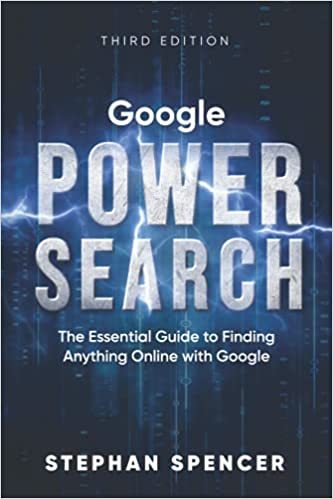
This is the third edition I’m holding up now of Google Power Search that just came out within the last six months, and probably three times larger now than the first edition. It’s much more comprehensive, it has many more great examples, and anything in the first edition was deprecated.
Search operators or anything like that, things like the tilde operator, which worked for specifying synonyms—let’s say tilde auto, and it would also include vehicle, car, and so forth—those sorts of things don’t exist in the Google algorithm anymore. So I can’t use that. I can’t use inlink.
So it definitely needed to be updated.
Yeah. I was very grateful that they gave me the rights back, and I could use the first edition as the basis to come up with a second and, more recently, the third edition. And it has an audiobook, too. So I could choose to do that. Unfortunately, I don’t have an audiobook of The Art of SEO.
That would take you 10 years to read that book.
Yeah, and I certainly wouldn’t narrate it myself.
Oh, you have a great voice. You could do that.
I could theoretically, but it’s 994 pages, so no.
I was going to say when we’ve had people come from, “hey, Suzanne. I had Hay House, or somebody published my first book. But now on my second book, I want Prominence to publish it,” because they want to have flexibility. So that’s really what it’s about.
And they realize that that’s why traditional publishers want you to have a huge following: they want to go, “hey, here’s the book, and have 100,000 people buy it.”
Yeah. How do you get to 100,000 books sold? That is an insurmountable task.
You got to spend money. Unfortunately, many authors believe that they will launch the book on Amazon and need to hire more staff to handle the news trucks parked on their lawns, and Oprah Winfrey is going to call.
We have best-selling authors, very humbly and quietly on your LinkedIn profile or your media kit, get people on podcasts, get the word out about what they do, and use the book as a vehicle.
One of the questions I have with my application form to have a call with me is, “do you think Oprah Winfrey will call you?” There’s so much that goes into it, so after we launch a book, that’s when all the juicy stuff happens. It’s not about selling books. It’s about having the book sell you.
Most of our clients, they’re business coaches or life coaches. We’ve got everything from chiropractors to real estate agents to dog trainers and everything in between. For some reason, a couple of people are doing agile software in tons and tons of different industries.
I tell them, “after you launch your book, I don’t want you to feel like you have a new full-time job trying to sell books.” It can feel like a gerbil on a wheel, like, “hey, buy my book.” Could you do me a favor? And I will say, “we do not do that.” We have best-selling authors, very humbly and quietly on your LinkedIn profile or your media kit, get people on podcasts, get the word out about what they do, and use the book as a vehicle.
Do you recommend having a publicist help you get the book in front of you?
I don’t because, honestly, the clients that we have don’t have a $100,000 budget. Publicists are pricey. It depends on your budget, though. If someone comes to me and says, “I have a $50,000 budget,” then okay. Great. Let’s hire a publicist. But, honestly, Stephan, most people want to know the grassroots way of getting the word out there, and again, it comes back to what your goals are.
Please give me a hypothetical scenario for each of these three options. For example, I have a nonfiction book ready to launch, self-published. I either have a $10,000 budget, a $50,000 budget, or a $100,000 budget. How would you spend that money with those three different scenarios?
I need to know about your business first. So do you have something to sell on the back end?
Yes.
I would put that towards a good cover design for the lower level budget, the $10,000. Or is that already been done?
Let’s assume that the cover design, ghostwriting, and editing have all been covered.
All have been covered. Okay. And you’re going to self-publish it and get it on?
Yeah. This is the promotion budget; would you hire a publicist in either of those three options, all three, or just two of the three?

In the $50,000 and $100,000, I’d hire a publicist. Consider doing something like a free plus shipping offer, Russell Brunson’s method, and some YouTube and Facebook advertising.
I’d refer you to someone. I won’t get into him right now because someone might watch this podcast years or months from now. But I know someone that does well with Facebook and YouTube ads for book marketing, so I would refer you to him.
I would always ensure that it’s not just about book sales but what the funnel looks like, what each step looks like, and having something else to sell. So, for example, if you’re selling your book for $20, it could cost you $20 or $30 in lead costs to get that one sale, so there’s got to be something else that you’re selling.
If you’re on a highway, the book is one of the on-ramps.
A lot of authors do not understand that, and they don’t have anything else to sell. So they spend a lot of money trying to sell books when it’s really about the book. If you’re on a highway, the book is one of the on-ramps. You being on a podcast is another on-ramp. Somebody reading an article you wrote is another on-ramp. So it’s all about coming to you to get more clients.
Are you doing this for yourself? Are you running Facebook or YouTube ads for the 15 books that you have? How are you walking the talk?
No. I’m just putting the finishing touches on it. The funny thing is, Stephan, the books I have written over the years are on trending topics, like taking care of your new baby, gluten-free recipes, women in business, and other things.
The book I’m writing right now, I’m really happy with it because it’s really about my business. It’s called, Everybody Has a Book Except You. I like it because it’s cheeky. I have my marketing guy waiting in the wings for me to just put the finishing touches on it, and I will definitely be running Facebook and YouTube ads to that book because I have a whole funnel behind it.

Whereas, like my gluten-free recipe books, I wrote under a fake name, a pen name, because I didn’t want that attached to my business. So I have a lot of books out there under pen names.
Oh, really? So the 15 books I see in your bio do or do not include the ones under a pseudonym?
That includes them.
Includes it. Okay. How many of them are under a pseudonym, the 15?
I think seven.
Okay. Wow. Interesting.
I’ve been doing this for a long time.
Okay. I gave you those three scenarios—$10,000, $50,000, and $100,000. I’d love to get it fleshed out more. What will go into each of those besides Facebook and YouTube ads? The cost of the agency or consultant running ads and the publicist, if we’re talking about $50,000-$100,000. Which of those three buckets are you in with your Everybody Has a Book Except You? What’s your budget?
We help people write and publish books, but we actually refer them out for the book’s marketing.
Mine will be about $100,000. I hate to disappoint you, but with Prominence Publishing (my business), our two main focuses are helping people start with, I don’t have a book, and bringing them to having a book. We help people write and publish books, but we actually refer them out for the book’s marketing.
I’m probably unable to answer this question in the exact details you want me to answer because we’re all about getting the book written in the first place. That’s what we love to do. That is my true passion.
I have a director of publishing that works for me that handles most of the publishing details because I can’t do it all in my business. But I realized a couple of years ago that I really, really love to help people believe in themselves and help them write a book. I’m so sorry to disappoint you.
No, that makes total sense. Our listeners will be even more relatable to you now because you’re in the same boat where you don’t have all the answers about the book’s marketing. It’s actually not that hard to get a book ghostwritten.
There are a lot of ghostwriters who will interview you, and get that transcribed, turn that into prose that you can now say, I have a manuscript. Now what? How is that going to change the world? How’s that going even to change my business?

That’s where the rubber meets the road when you say that I don’t have all the answers, but I have a $100,000 budget that I’m putting towards this new book I’m about to launch. If our listeners are like, I could scrounge up some money. So now, who do I hire? Dan Sullivan has this book called Who Not How. Get the right who, and you don’t have to know the how.
You don’t have to know the how. You got to hire the right people. They can contact me, and I will refer them, but I’m not going to get into it right now who I have in my back pocket and who I hire.
If you could give me some generalities, is it a team of people you’ve assembled? Is it one agency, and they have all the pieces? For example, with Facebook and YouTube ads, you could work with the same agency that handles both. On the other hand, you could work with two separate agencies, one specializing in YouTube ads. I interviewed Tom Breeze, for example. He’s a YouTube ads expert, up top guy, and has an agency that exclusively handles YouTube ads.
That’s perfect. It really depends on how you want to do it. It’s nice to have one agency handle both if you can find the right person because they understand your funnel and your goals. You don’t have to explain everything two separate times to two different agencies.
And then you have a separate publicist because I can’t imagine that the same agency handling your advertising will also be great at publicity.
People don’t know how much work it will be after the book comes out. And it’s tiring, but you have to go out there, get on podcast interviews, and do the work.
It has to be a separate publicist. The thing with the publicist is you’ve always got to know what you want. You want the publicist to bring you interviews on radio, TV, and in magazines. Have a good media kit and pre-written questions the host can ask you on podcast interviews like we’re doing now, although you’re not asking me any of my pre-written questions.
No, I don’t do that.
You don’t do that. You still have to do the work. People don’t know how much work it will be after the book comes out. And it’s tiring, but you have to go out there, get on podcast interviews, and do the work.
Also, driving people to have them do what they want. If you have a free thing that goes with your book, like, “oh, I have an online course that goes with my book.” Just be humble and subtle about it, so you’re not constantly saying, “my book, my book, my book,” but to be able just humbly to steer people in that direction. It’s more likable, I think.
It reminded me of a long time ago when I learned about pickup from Neil Strauss, one of the world’s experts on pickup artistry. He wrote the book, The Game.
He talked about the DHV (Demonstration of Higher Value). You don’t go bragging to a prospect (say) and mention, “yeah, I’ve dated a supermodel before, and I’ve got a fancy car” and all this stuff that makes you sound like a douchebag—a real tryhard. Instead, if you’re weaving these DHVs into your storytelling, it doesn’t sound like you’re bragging.
I got to tell you this crazy story that happened to me. I ran into an ex-girlfriend. Can you believe she’s a supermodel? I ran into her the other day. Then you tell this whole fascinating story. But you dropped these DHVs into the story, so they know you’re driving a Bugatti.
Actually, I teach that in my course on how to write a book. I teach that. I call them seeds. Instead of saying, “yeah, I work at PricewaterhouseCoopers, and I manage 500 people,” you could tell a story, like, “when I was working at PricewaterhouseCoopers, I had this lovely young woman who had just given her notice, and she asked me for a letter of reference.” She said, “I don’t think you’ll have time because you’re busy managing 500 people,” but I was happy to do it for her. You can weave exactly like that, and it makes you likable.
I like what you said about having some free thing, like an online course, that allows the person to take it a step further after the book and also gives you something else to offer as value besides just flogging the book all the time.
When you’re selling your book in bookstores, you don’t know who has bought your book.
Yes, but not only that. It’s normal with traditional publishing. When you’re selling your book in bookstores, you don’t know who has bought your book. If you have more control over your book, and maybe at the end of every chapter or somewhere in the book, you say, “I have a companion, like a bonus chapter. Go to my website and download it.”
I recommend that you have control over that URL wherever you’re directing people. If it’s your website/book or resources, whatever that landing page is, you can change that anytime you want. You might have a different giveaway that you’re doing a year or two from now.
People often say, “Oh, can you change that URL in my book?” And I’m like, “I told you not to do that.” So don’t direct it to a URL you don’t have control over.
But really, always think about what’s in it for the reader. How do I want my reader to feel? What do I want my reader to do? You’re writing this book, so your reader can have a transformation, or entertainment, or a feeling of something, a result. So you do need to help them.
But if they have to opt-in for your free chapter or your free video course or whatever, then you can follow up with them, and have a way higher chance of upselling them into your program or your coaching, consulting, or whatever you have.
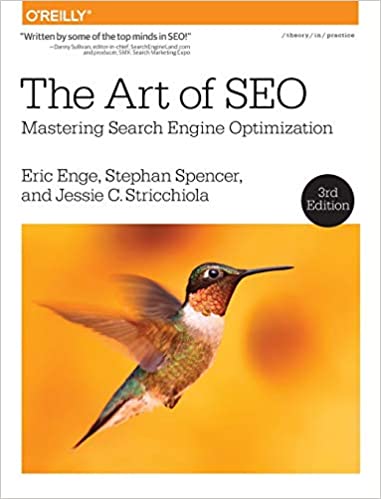
Do you plan on having a free plus shipping funnel setup for your new book, Everybody Has a Book Except You?
I’m not planning to do that. I like to sell books through Amazon, so with the free plus shipping, you have to have a fulfillment company. You got to print all the books and have a fulfillment company deliver all those books for you.
I’m going to have the payment go through and then have them land on the landing page with the thank you and, a free guide, a free video, and then get them in my email funnel.
Usually, I do a lot of strategy calls with people. It works best for me. I don’t want to have the webinar selling at the end. It’s just not comfortable for me. And whenever I say to people, here’s this training I’m doing. Some of you are going to take it and run with it. It’s all you need. Other people might want more information, so I’m going to link to my calendar. I have a way better close rate, to be honest, with people when I’m chatting with them on a Zoom call.
That’s my plan. It’s very, very simple. It’s not very complicated at all.
Are you going to do one-on-one strategy calls instead of one-to-many free group coaching or webinars to get people into your buyer?
I have a closer that works for me, so I’m not the only one doing the calls. So I’ll do the one-to-many, like a free training webinar. At the end of that, they have to apply for a call. Then I can decide if it’s going to be a good fit or not.
Okay. Do you plan on offering a bonus if somebody sends in their Amazon receipt or like the Amazon ID receipt code?
All the tools you need are already inside of you. Remember: You are enough. Your story matters. Share on XThat’s exactly what I was planning on doing.
Tell us a bit about how that works.
To be honest with you, it’s hard to track. Quite honestly, people could fake it. I was talking to my IT guy about that, and he’s like, “I don’t know how you can track that. I can’t go into their account and look up the receipt number.”
But you know, I feel like I attract great people for my followers. If somebody wants the bonus course so badly that they’ll fake a receipt number, they can have it. Just have it. I just think, whatever. So I don’t worry too much about stuff like that.
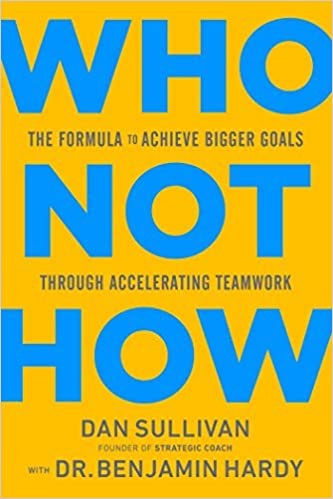
What happens to somebody who legitimately purchased your book through Amazon, sent you a receipt, or pasted the order ID into a form on your website? How do you handle fulfillment? What happens once they’ve done that? What are they getting, and how are they converted into a high-ticket client? They’re going to get a free course. They’re not paying you any money yet.
On that thank you page, after they submit the form, they get training, basically like a walkthrough where I teach them full value. Here’s what you need to do before you write your outline. Fill in this worksheet, this, and this, and this, and this. Then here’s how you write your outline. Then say, if you need help with this, why don’t you jump on a strategy call? Then that links to my calendar.
Got it. What would you assign the value of the free course you will give away? Is it retail at $97, $997, or $4000?
It’s a portion of the course that I’ve been selling for many years that cost $2000. So it’s a portion of that. So I could assign a value of about $499 or $500.
Okay. How’s that foundational course even offering for many years? Give us some insights on how that generates value for you and your business, not just something sitting there occasionally selling and not even breaking even.
It’s more than breaking even.
And by the way, to give you a context around this, I asked that question because my courses don’t break even. I have six of them. I’ve invested a lot of time and money and have not yet recouped what I’ve put into it.
Oh, shoot.
That’s okay.

It’s funny because my course is bootstrapped. I always think, “oh, I’ve got to redo this. I got to redo this course.” But it works. I have people join the program, write a book, and then they tell their friends, so I have a lot of personal referrals that I get.
Actually, I’m not doing any advertising for that course right now. People come through LinkedIn, hear me on a podcast, and tell me more about your program. About 50% of our revenue comes from my course.
It’s quite a vibrant community of people, and we meet as a group on the first and third Wednesdays of every month. So it’s like a little family. The funny thing is, when people join the course, I’m like, “yeah, now you’re stuck with me.”
The other day, I had to give someone a little bit of tough love because he hasn’t been doing much writing. He was like, “I can’t find the time to write. I’m just curious, Suzanne. What happens when I’m at the end of my one-year contract?” I was like, “it’s okay. I got you.” I end up becoming good friends with my clients. I want them to succeed, and I want them to do well.
I know all my people, and I care about them a lot.
I’ve been in other people’s courses where a huge number of people, and you feel like a number. The coach doesn’t even remember you. But I know all my people and care about them a lot.
To answer your question, it’s word of mouth. Anytime I go to a networking event, which there haven’t been many lately, I promote it there and promote it whenever I’m chatting with people.
What’s the name of the course?
If people want to go to The Expert Author Program, there’s a free blueprint they can download that gives them an idea of the steps to writing and publishing a book.
Awesome. You’ve mentioned that you have a closer who works for you. Is that somebody you hired as an internal staff person, or are you working with an outside contractor or agency that does the closing? How does that work?
It’s somebody that I’ve known for a long, long time. I used to work with her, and I know she’s good at sales and trust her.
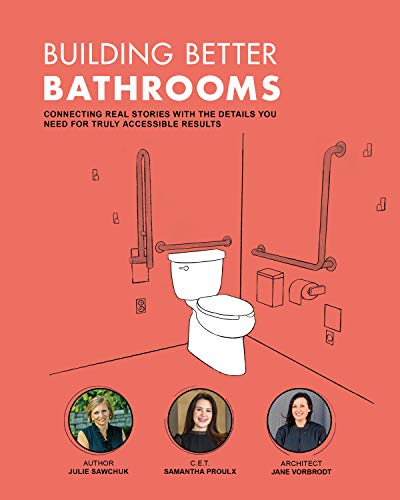
Samantha Proulx, Jane Vorbrodt
I always say to people, “you know what? Only hire a closer when you have too many calls to handle.” If I’m making more than 15 sales calls in a week, I find them exhausting because, on a sales call of 30 minutes, I want to know about your business, why you want to write a book, if it’s a good fit, and if I can help you.
It’s a lot, and it’s intense. If I have five calls in a day, I’m exhausted. So for me, 15 a week is my max because I only do them on Tuesdays, Wednesdays, and Thursdays.
My colleague—her name is Debbie—I recorded a bunch of sales calls that I did, and she takes over when I’ve got too many on the books. So I know it’s hard because I’m lucky that I trust her and know her style.
How would I go about finding someone on Upwork or something like that? It’s unnerving because you don’t want these hot leads to not close. Some people want to join your program, but the closer it goes, it doesn’t work out. So I’m like, “why not?”
That’s like throwing money away.
I know. It’s hard for your business when you feel I should do it myself. But you can’t do everything.
You said you record the sales calls you have to hand over to the closer. So the prospect knows that you’re recording the call.
Yes. What happens if I ask them, “is it okay to record this call? In case one of us has something brilliant, I want to send you the recording if you want it.” So I’m upfront about that.
Self-publishing your book is much quicker than traditional publishing methods. When you self-publish, you own all the rights to your book and you receive all of the book sales’ royalties. Share on XSometimes we get deep into their book and have different ideas for their book, so I’ll send them the recording. Whether or not they decide to join the program, it’s still a valuable tip for them sometimes.
That’s nice. Very cool. A long time ago, when we first met, you mentioned in the mastermind that you have this great process for getting testimonials. Then you followed up with me and sent me an email with the blueprint and the template for requesting testimonials from happy clients. So I wanted to delve into that a little bit because it’s such a cool template you sent.
Have you been here using it?
I have not, but I will.
It works so well.
I know. It’s funny. That email you sent me is still in my action folder, even though it’s been five years.
Oh, that’s so funny.
It’s one of the oldest emails in my action folder, and it’s still there, which is funny but also dysfunctional. If I can’t implement something in five years, I should probably file it.
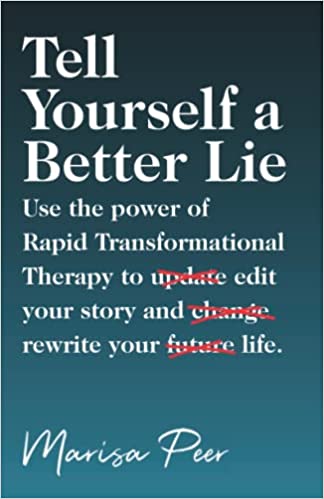
What’s stopping you? How are you getting testimonials now?
We’re not actively doing it; it’s been a while. I have tons of testimonials on my site.
Testimonials are important for social proof because other people checking you out want to know that others have succeeded.
Yeah, and there’s a plethora of great testimonials. But, unfortunately, the newest one is probably three or four years old.
They have to be up-to-date.
All right. Thanks for the nudge.
It’s more of a kick.
Let’s talk about the process. What’s the secret sauce or the magic behind getting an amazing testimonial, not just a ho-hum one?
First, it has to start at the beginning of the relationship with a new client saying, “so that you know, I’m going to be asking you for a testimonial one day when we finish all our work.” You gently say it like that, so they know. We’re going to work together, and then I’m going to give a testimonial—that kind of thing.
Sometimes I launch new mini-courses and stuff. I had one I called Eight Week Author, which was only $499. It was only eight weeks. So, I said to people, “I’m going to let you take the course for the low price of $499, but here’s what I need from you.” Two things. One is constructive feedback on how the course can be better. The second thing is a testimonial. So, if you agree to those two things, and everybody’s like, okay.
What I do is I send an email, and the subject line says Three Quick Questions. In the body of the email, I say, “hey, Janet. It’s been such a pleasure working with you. I’m so happy that your book is finished. How’s your dog?” Then I say, “I have three quick questions for you. It’ll only take two minutes.”
That brings down their level of like, hey, can I ask you for our testimonial? People say, “I want to do this for you, but I don’t have time.” So you say three quick questions, which will only take two minutes. Please reply to this email.
Number one, I usually say, what was your biggest worry before working with me, and what happened instead? This is great because people are like, “well, I wasn’t sure if I wanted to spend the money to invest in a course when I thought I could write a book myself.” Then it turned out that it was the best thing I ever did. So you get these little snippets from these testimonials that were, like, the best money I ever spent. It’s awesome.
The second question is, I need to remember.
I can help you with that because I’m looking at it now.
What’s the second question? I’m on the spot.
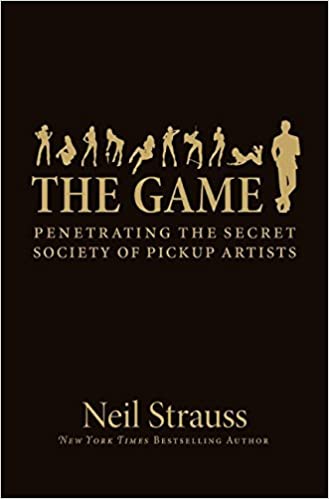
What specifically was your favorite part of the program and why?
Yeah, and everybody always says the group coaching. I always say that people who come to the coaching calls are the ones who write their books.
What was the third question?
If you were to recommend my company to your best friend, what would you say?
Yes. That’s a good one, too.
I had this woman who filled it out. She was just one author in a multi-author book. She was very curt and short when I was communicating with her from the book. She just sent a quick email, and I felt she didn’t like me. So I was like, “I don’t know why she doesn’t like me, but some people don’t like me. Maybe she doesn’t like the sound of my voice or my frizzy hair.”
Are we good at making up stories?
I know. It was totally crazy because when I got her testimonial, she said, “if you want someone that you can rely on, someone who will never let you down, call Suzanne. If you want someone who has your back, call Suzanne.” So I’m like, “What? She likes me.”
So, not only is it good for businesses to have these testimonials, but it’s also good for your self-esteem.
So, yeah. Well, I interviewed on my other show, Marisa Peer.
I love her.
She’s got a book out. The newest one is, Tell Yourself a Better Lie. That would have been one of the lies you told yourself, like, “oh, she doesn’t even like me. She doesn’t like me.” That’s not true.
Exactly. It’s a great lesson because I always remind myself. I don’t know what’s going on in someone else’s life. They could be taking care of a dying parent or dying pet, or maybe they’re going through a divorce. Who knows what’s happening in someone else’s life? So have grace, kindness, and patience with people.
Positive expectancy is another.
Yes. Do you know? I got to tell you something funny. I was just in Europe, and I did the Camino. It’s a walk. I did 144 kilometers, just a portion of it, but I remember it was so funny.
How much did you walk?
Well, you can do like 700. There are a hundred different routes, and they all end in Santiago de Compostela in Spain, where this big, huge cathedral is so amazing. But I took the Portuguese Coastal route and started north of Porto.
I didn’t want to kill myself, so I thought, I’m going to do like the elderly lady way. So I just walked between 10 and 20 kilometers daily, which was nice. Then, I’d have a glass of wine and some seafood in the evening. It was awesome.
But still, that’s impressive. How many miles was that all in or kilometers?
I don’t know how many miles it is. It’s 144.9 kilometers.
That’s amazing. Congrats.
I was going to say, speaking of the lies we tell ourselves, I had worked so much on my mindset over the years that when I heard people speaking in Spanish or Portuguese, I would think they were saying nice things. I always think, “oh, that’s such a nice woman over there. She’s just so lovely.” She could have been saying horrible things, but I always assumed they were saying nice things. So it’s funny how you tell yourself either the negative or the positive.
The magic of it is you influence the outcome with your beliefs.
Exciting doors may open after your book is published: You shouldn’t sell the book…you should let the book sell you. Share on XIt’s so true. Are you going to write a book about that?
I am working on a book about that; it’s called Living in a Friendly Universe. It is a friendly universe. Some people don’t see it that way, and they bring that reality to the forefront. But the true reality is that everything is a blessing. Sometimes the blessing is not revealed yet, but it’s all a blessing.
I totally believe that. I can go on and on with stories about that. I had an experience on the Camino where I went into a church to get out of the sun and have some shade. I was sitting there. I took my backpack off. Then the priest came over and talked to me in Spanish. I couldn’t understand what he was saying. Finally, he looked at me, saying, “doors closed, doors closed,” and I got kicked out of the church.
I just wanted to have a minute to ask God to show me the way because I couldn’t find the yellow arrows that day, and I didn’t know if I was going the right way. As soon as I walked, I was laughing. It’s like, I got kicked out of the church. I guess I don’t fit in here. I don’t know. It was so funny.
More lies you tell yourself, okay?
Exactly. So it didn’t go there. I was laughing. This man when he was speaking to me in Spanish, I assumed he was saying, “you’re such a lovely person.”
I walked out of the church, and honestly, this woman appeared out of nowhere. She’s beautiful Spanish. She walked towards me and said, “hi. Can I help you find the way?” I was like, “what is happening? Yes. How do you know that? I was just in the church asking for help finding the way.” It was so beautiful and so amazing. I had lots of things like that happen on the Camino. I highly recommend it.
That’s so cool. Once you’re tapped in, you become like Neo in The Matrix, and stuff materializes in front of your eyes.
I know. It’s so cool.
It’s awesome. Now, back to this email that you sent to get a testimonial. I love the little bit at the end where you’re cheeky, and you say, “Okay, now there is one last question. Can I use your answer as a testimonial?” (See? I am sneaky.)
Exactly. I’m sneaky. Then everybody says, yes, of course. You can.
I was doing author spotlights with some of my clients, where we did a side-by-side stream interview after their book came out and talked about how you use your book as a marketing tool. I want to show people who don’t have a book what comes after the book, what I call beyond the book. How was life changed? How has your business changed? What has happened?
Because many times when people get clear when they’re writing a book, they have to get clear on their business, who they help, and how they help them, then they get more business. It’s just amazing.
I want to show people who don’t have a book what comes after the book, what I call beyond the book.
Give us an example of a client who completely transformed their business and life by having a book.
I would love to. One amazing woman, Julie Sawchuck. She used to be a high school teacher. When she was in her 40s, she decided to want to get in shape. So she started running, and then she signed up for a triathlon. She did a triathlon; she liked it, so she decided to do another.
She was riding her bike down the road one day, and she got hit by a car flying through the air and landed in a ditch. She almost died and is now living with a disability. She has a wheelchair. She uses a wheelchair.
I learned so much from her. But, of course, I learned more from her than she learned from me. But I loved my journey with her as my client because now she has three books. The first one was building an accessible home, where she said, this is what you need to know.
Then she got a writing contract with the Spinal Cord Injury Ontario, and they paid her to write a book about What Happens Next. Nobody plans for this to happen. You wake up at the hospital one day, and you got to leave in a wheelchair. What do you do, and how do you live? So that’s a great book.
Then she wrote another book called Building Better Bathrooms. Now, she has a successful consulting firm, and she helps businesses make sure their bathrooms are accessible. I didn’t know this, but you can’t just put a grab bar on the wall willy-nilly. It has to be in a certain position. Even the toilet has to be in a certain way, so people have independence.
What was also cool about her was that she decided to create an online course for high school students in the construction program. She felt mostly guys, but some girls graduating high school with a certificate in construction to build houses and buildings, don’t learn anything about accessibility. So her course is on top of that.
I don’t know if I feel comfortable giving her financial numbers, but let’s say there’s a certain set price that she sells this course to high schools. They have a license for one year. They have the budget for it. So one day, she sold 20 of them in a day, and they were really wonderfully priced.
I am so happy that she’s not sitting at home trying to figure out how to sell books. Being an author in this space has opened so many doors for her. She even got a consulting job with Dyson Vacuums. She was out somewhere, and she was speaking at an event. Dyson was there, and she said, you know? I was vacuuming the other day and fell out of my wheelchair because it was very difficult. So they’re like, “oh my gosh! We never even thought about that. Can you help us figure out how we can make better vacuums?”
No one knows what's happening in someone else's life. Bestow grace, kindness, and patience on everyone. Share on XIt’s amazing what has happened to her career. She’s such a lovely person and deserves the best life can bring. That’s just one story, but there are lots of stories because I get so excited.
That’s awesome. You’re making a difference for people, that’s for sure. But, when somebody like that is putting their name out there in the world and has a great value offer, do you also help them produce the media kit and get on to podcasts and all that? Is that part of what your company does, or do you refer them to other folks?
We do that, but we teach them. We give them templates. I have podcast training, a whole training on how to get booked on podcasts. I only give it to my clients, and I decided to sell it. People love it. It was like a little mini-course.
We teach them how to get booked on podcasts, and it’s really simple. It is. My assistant reached out to you with a little script to your assistant, and then both of them worked together to put this on the calendar, and here we are. It’s pretty simple to me.
And by the way, I did not remember who you were. When I saw the email from my assistant saying, do you want this person? She’s a good gatekeeper. People who don’t cut don’t even get in front of me. But you made the cut, and she was getting approval before getting you confirmed on my show. So I didn’t connect the dots yet at that point. Oh, yeah. That’s Suzanne; I met her. We had a great time.
Yeah, I know. That was so funny when I just noticed that, too. My assistant puts the podcast on my calendar. I generally don’t look at who’s who until a couple of days before. And I was just in Europe. Luckily, we rearranged this because I was going to do it when I was in Portugal, and I’m glad we arranged it for when I was home and I’m a little more relaxed.
Whether you have a ghostwriter or you write your book yourself, it’s easy to do when you have a good plan and blueprint, someone guiding you like me, and someone who is your cheerleader.
It’s not worth stressing over. I don’t do podcasts when I’m traveling or anything where I’m hitting up against a big deadline or something. So I’m not going to stress myself out.
Exactly. You got to be relaxed.
Awesome. So what would be the parting nugget of wisdom that you want to share with our listener or viewer, something that you haven’t already shared that could make a huge difference in their life or business?
Remember, to the world, you may be one person. But to one person, you may be the world. Somebody might be looking for you right now. Having a book helps get you exposure and visibility.
As you said, Stephan, it’s easy. Whether you have a ghostwriter or you write your book yourself, it’s easy to do when you have a good plan and blueprint, someone guiding you like me, and someone who is your cheerleader.
I always tell my clients everything they need is already inside them. You are enough. You matter, and your story matters. And I love to be able to help people get it out there.
Awesome. We have a gift for our listeners.
Yes. If they want to get my free little blueprint, it’s at expertauthorprogram.com. They can sign up for it there, poke around the website, and see what they want to see.
And potentially work with you.
Give me a call.
Well, thank you, Suzanne. It was great to reconnect. Thank you for all the wisdom, great stories, and advice you shared in this interview.
Listener, I hope you take advantage of the information that was shared and turn that into some revelation of light in the world. Make a difference for more people. If you can do it in the form of a book, fabulous. If you can’t, at least do something—an article, blog post, a video on YouTube, something to spread the light.
We’ll catch you in the next episode. I’m your host, Stephan Spencer, signing off.
Important Links
Connect with Suzanne Doyle-Ingram
App and Tool
Books
Businesses/Organizations
Film
People
Previous Marketing Speak Episode
Previous Get Yourself Optimized Episode
YouTube Videos
Your Checklist of Actions to Take










About Suzanne Doyle-Ingram
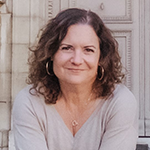 Suzanne Doyle-Ingram is a best-selling author who has written and co-written a total of 15 books. She coaches and trains business professionals on how to write and publish a book and how to use that book as leverage to increase their visibility, open doors for speaking engagements, grow their brand and business, and much more.
Suzanne Doyle-Ingram is a best-selling author who has written and co-written a total of 15 books. She coaches and trains business professionals on how to write and publish a book and how to use that book as leverage to increase their visibility, open doors for speaking engagements, grow their brand and business, and much more.
Suzanne has also helped hundreds of business professionals get published through collaborative anthology books by bringing together the collaborative efforts of experts in various fields that contribute to one multi-author book on a specific topic. Suzanne has had tremendous success with this model.
She lives in a little seaside town near Vancouver, Canada.







Leave a Reply